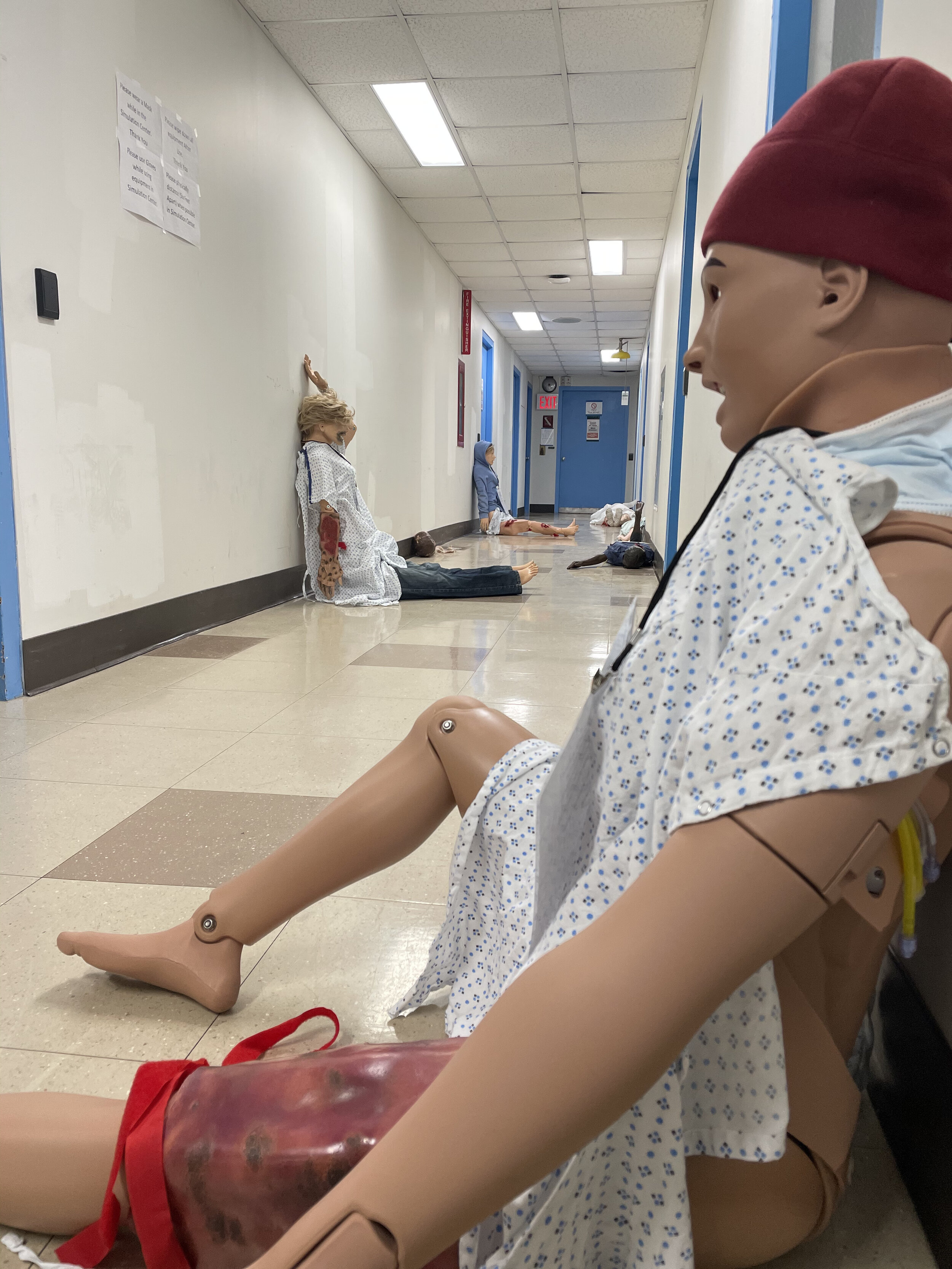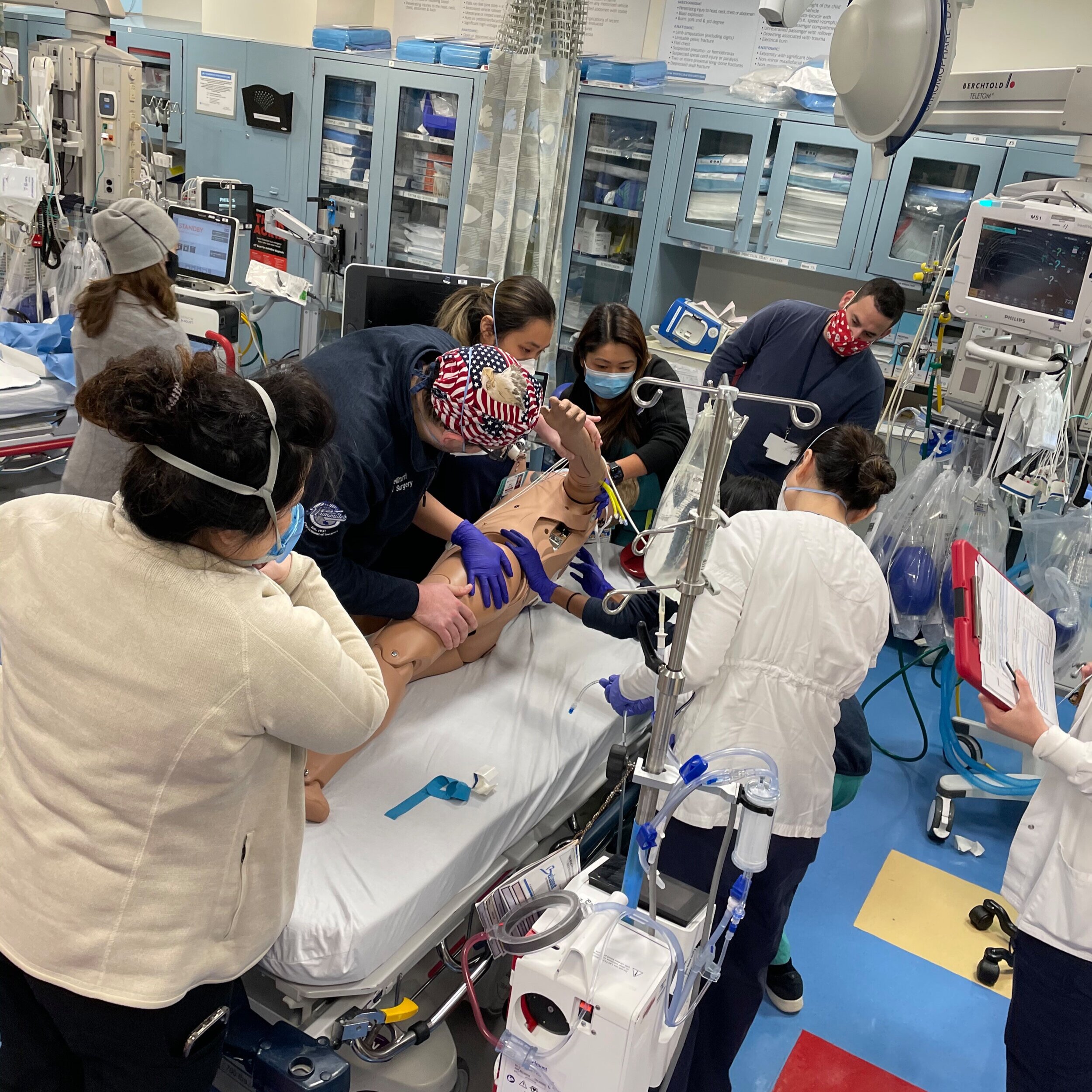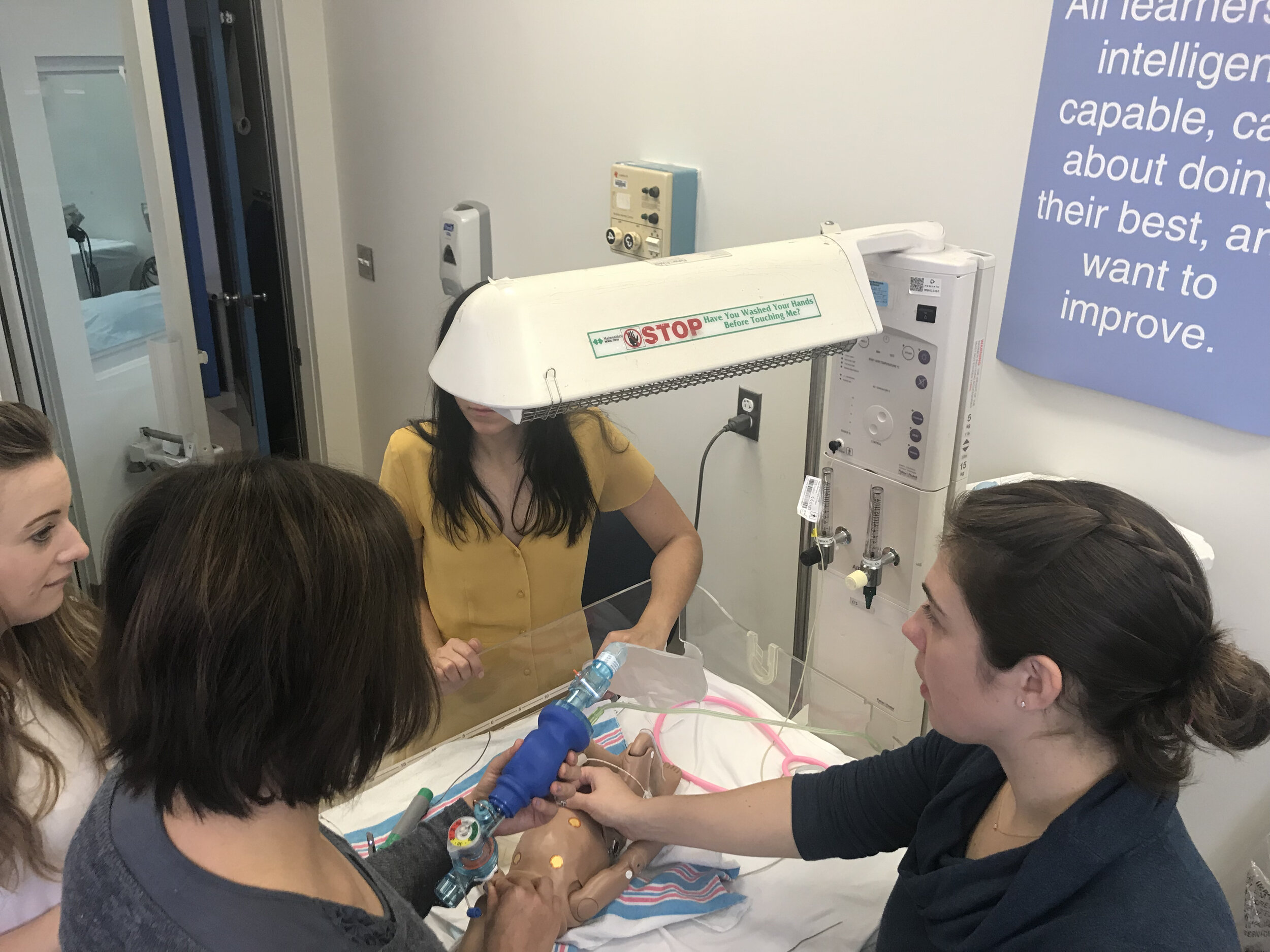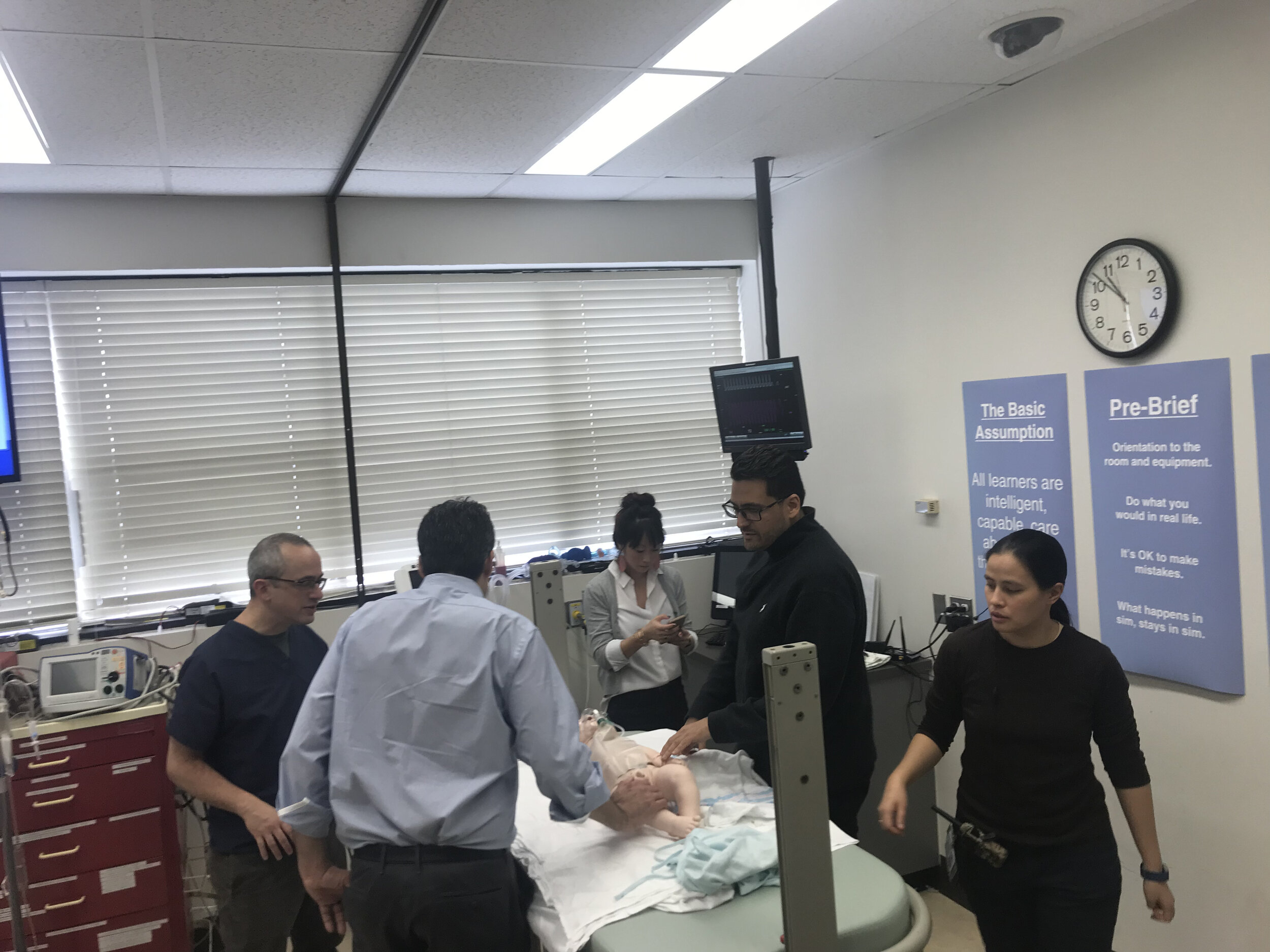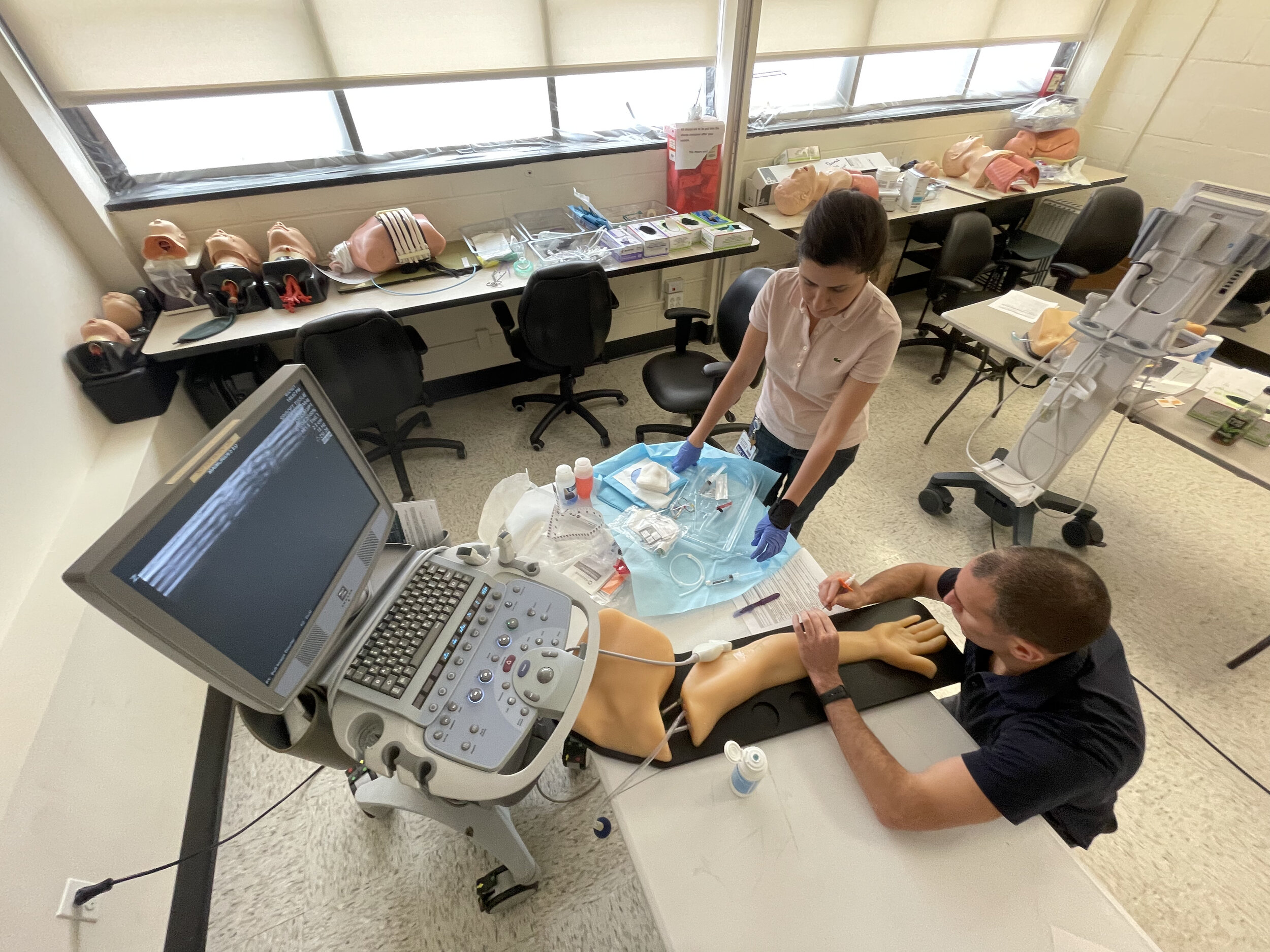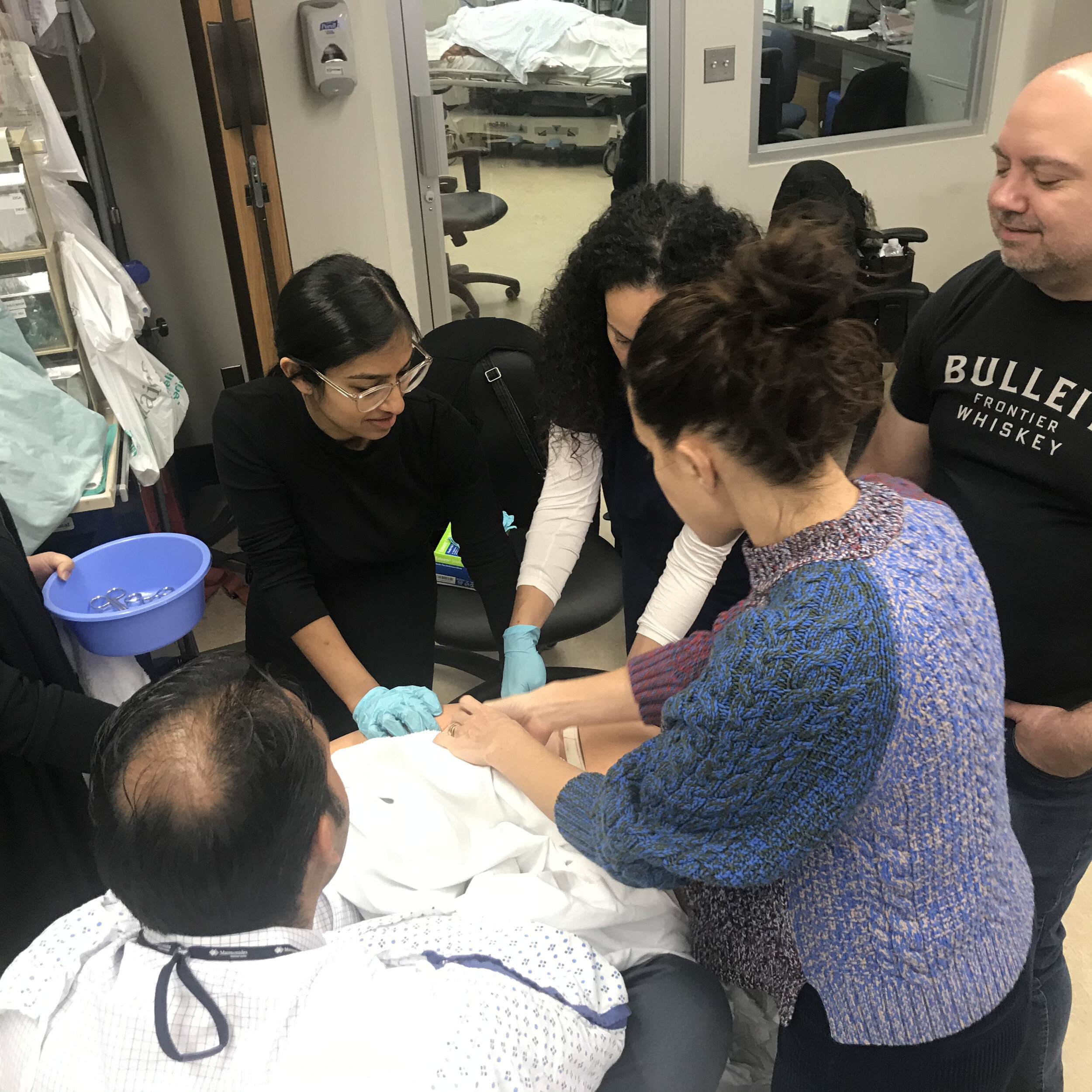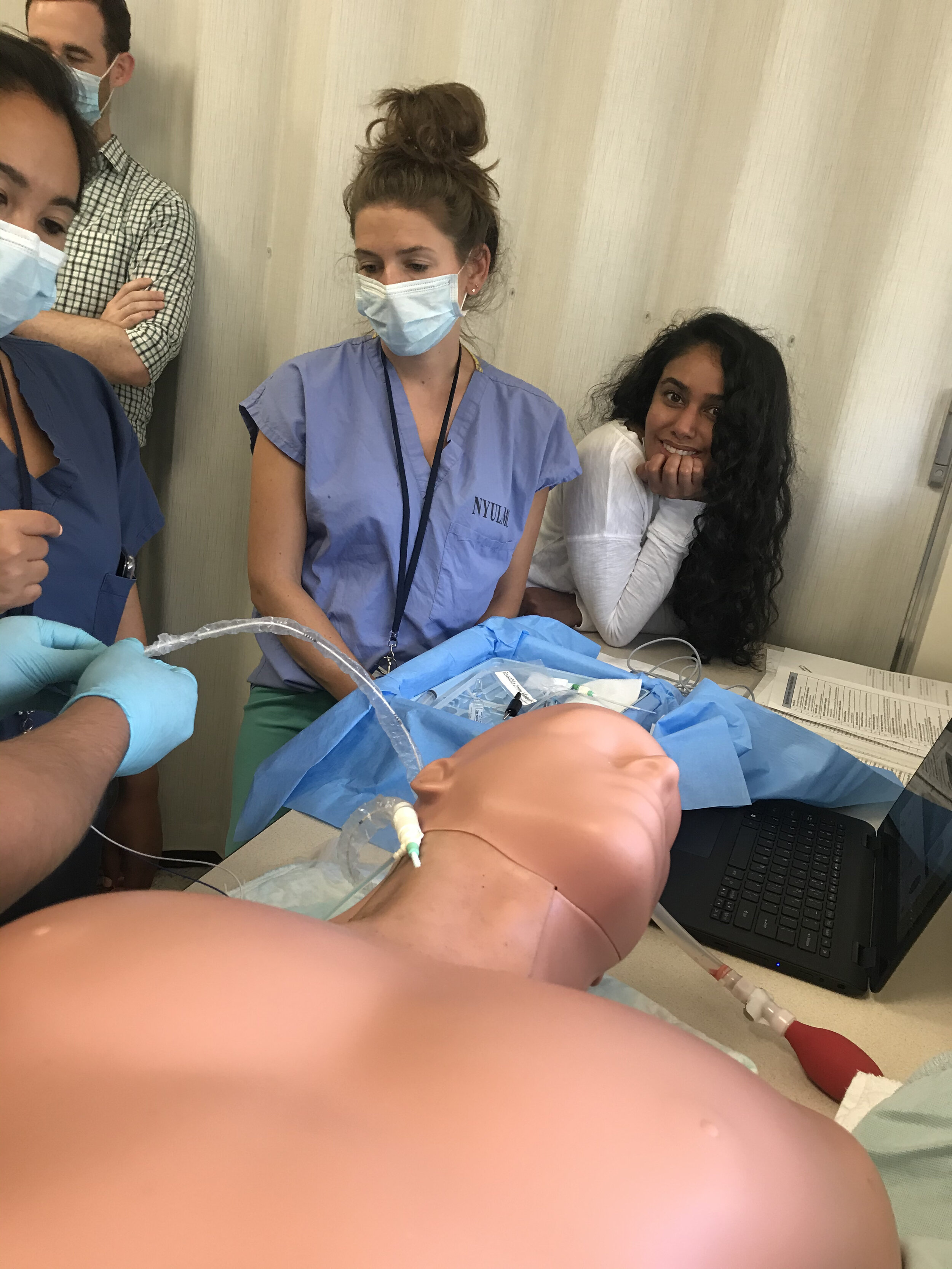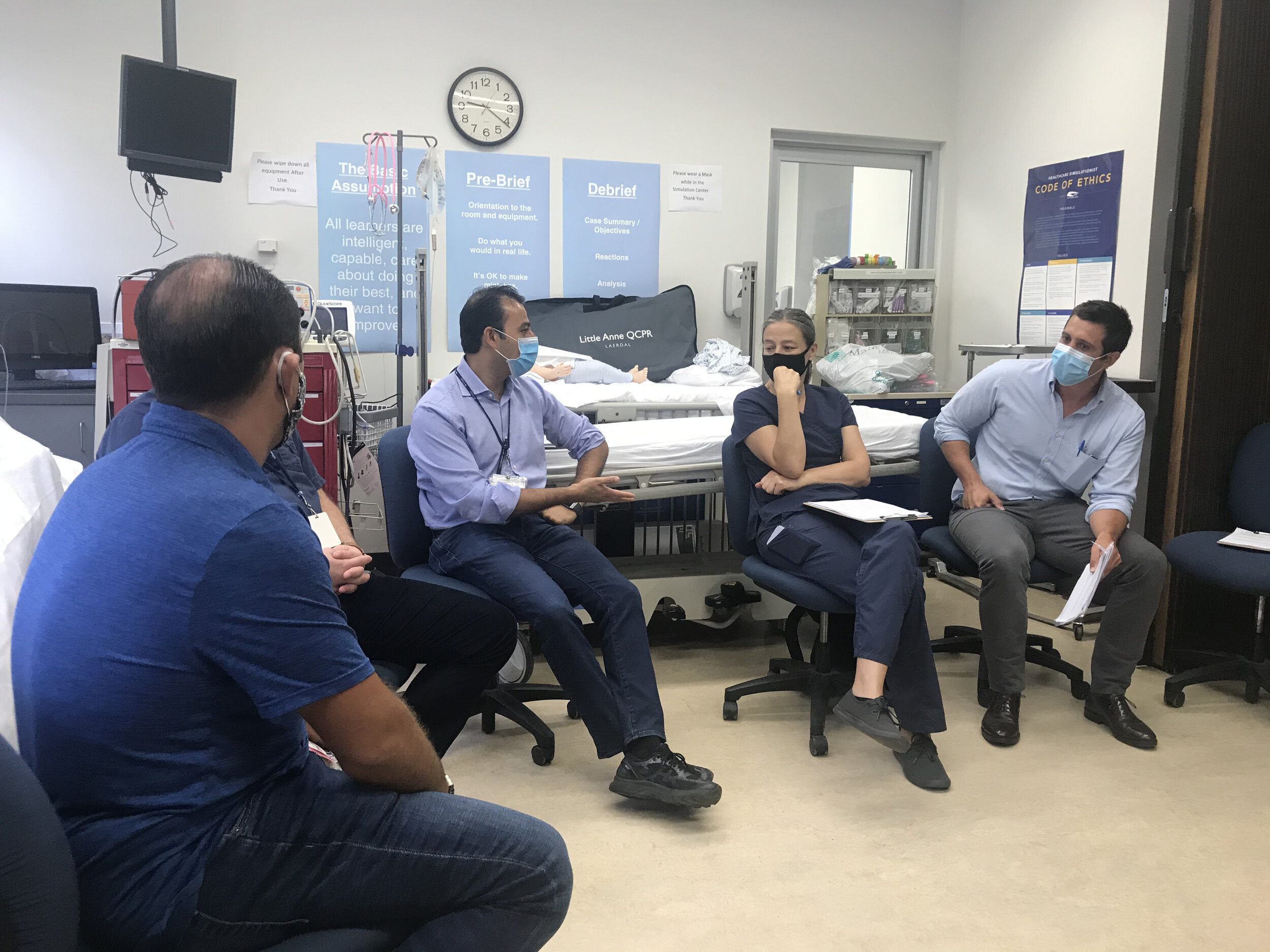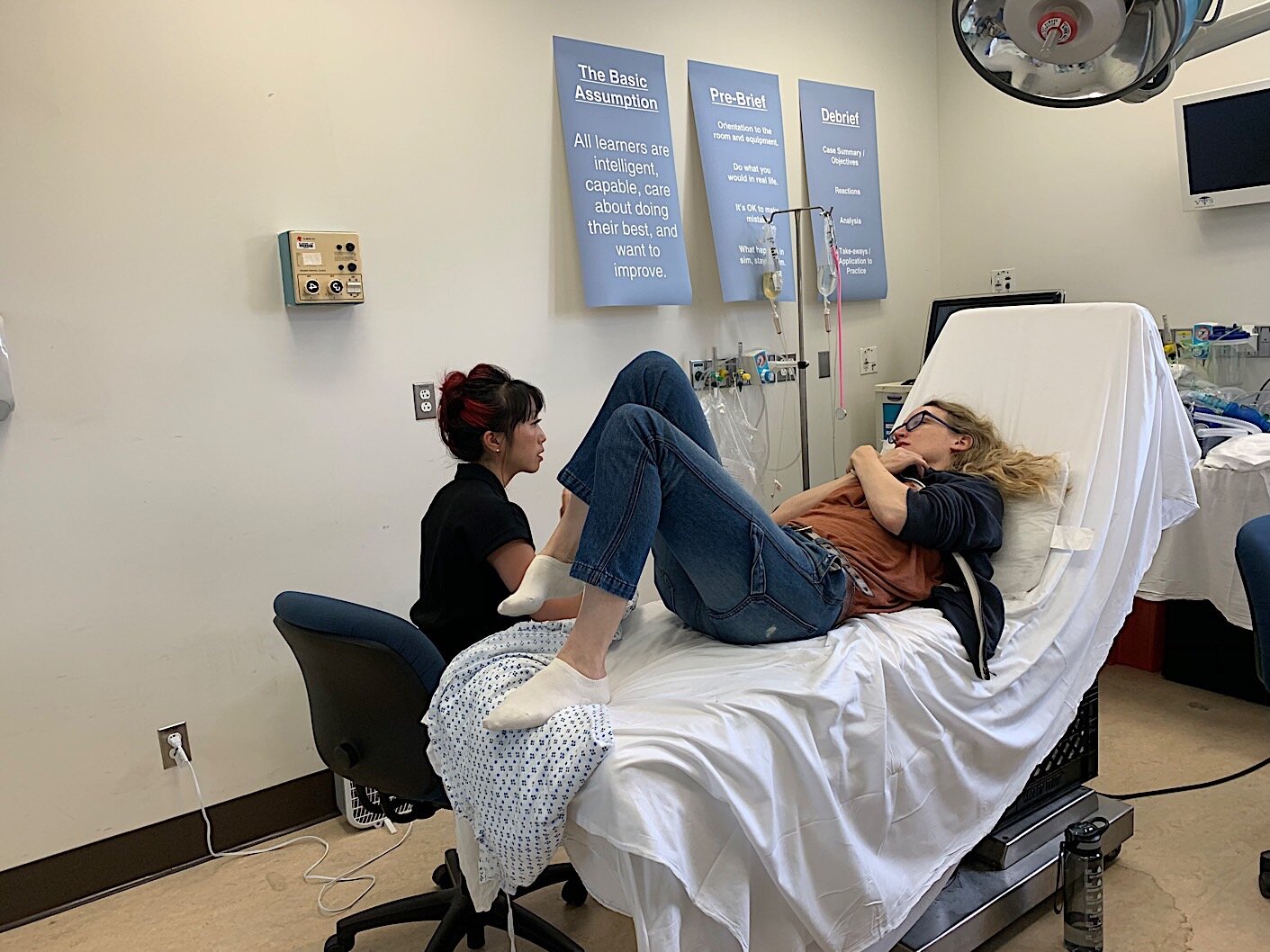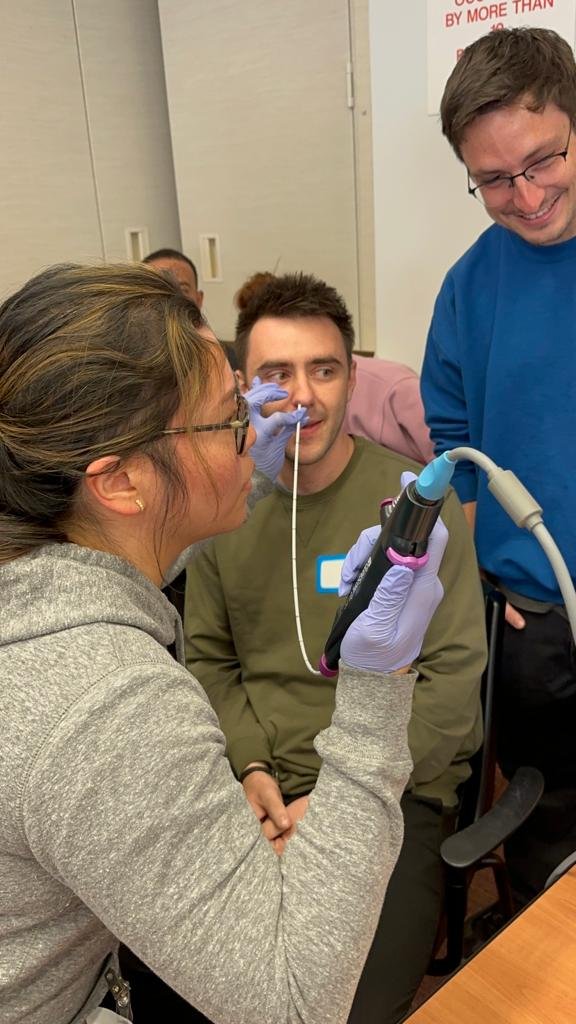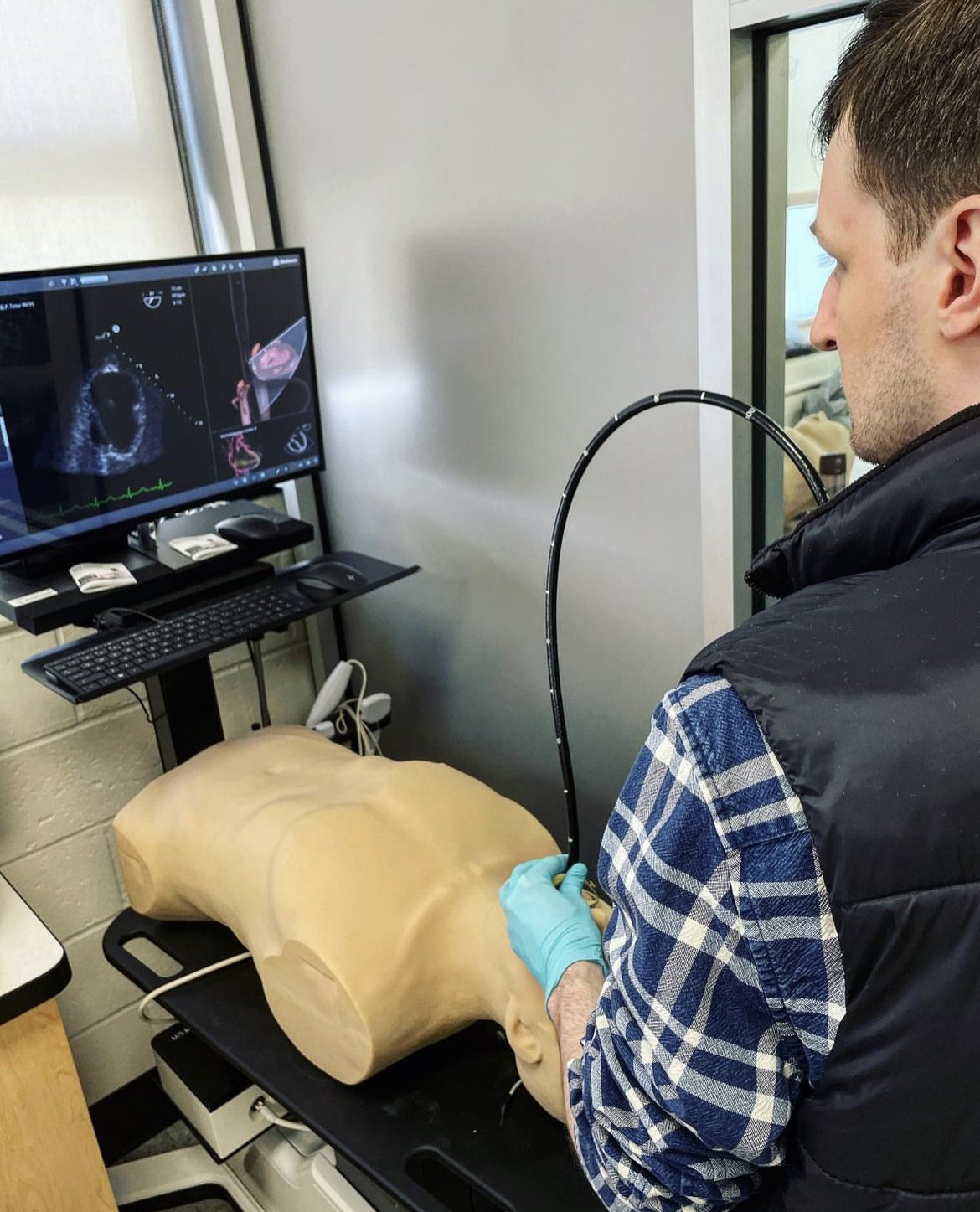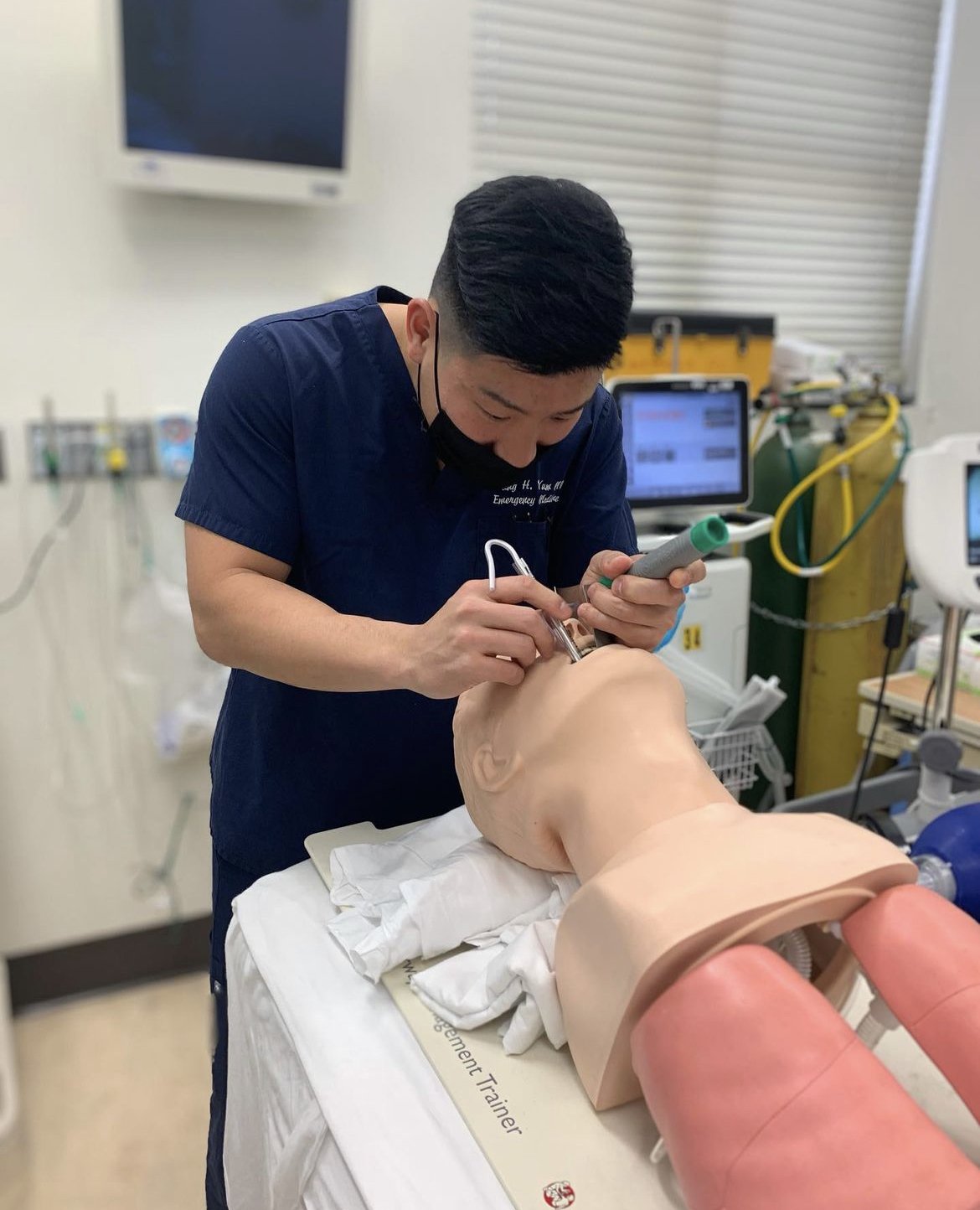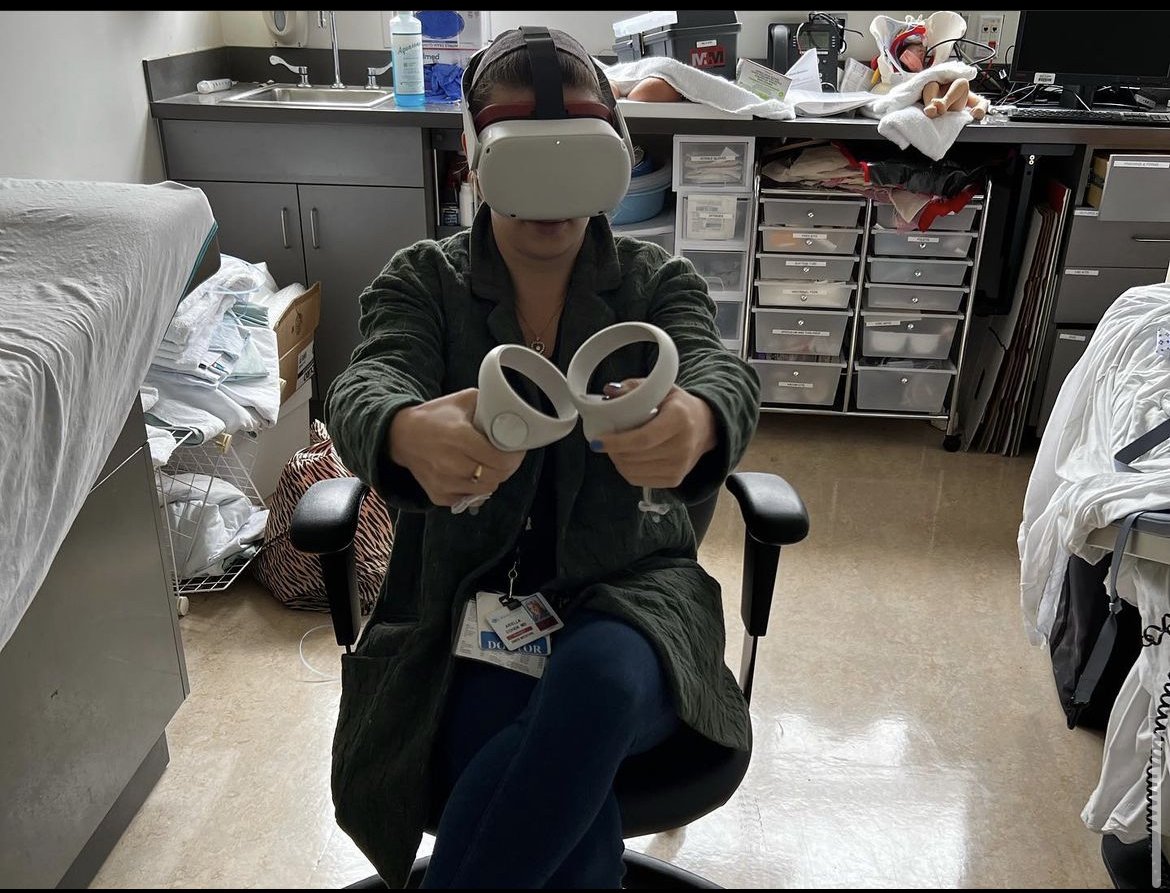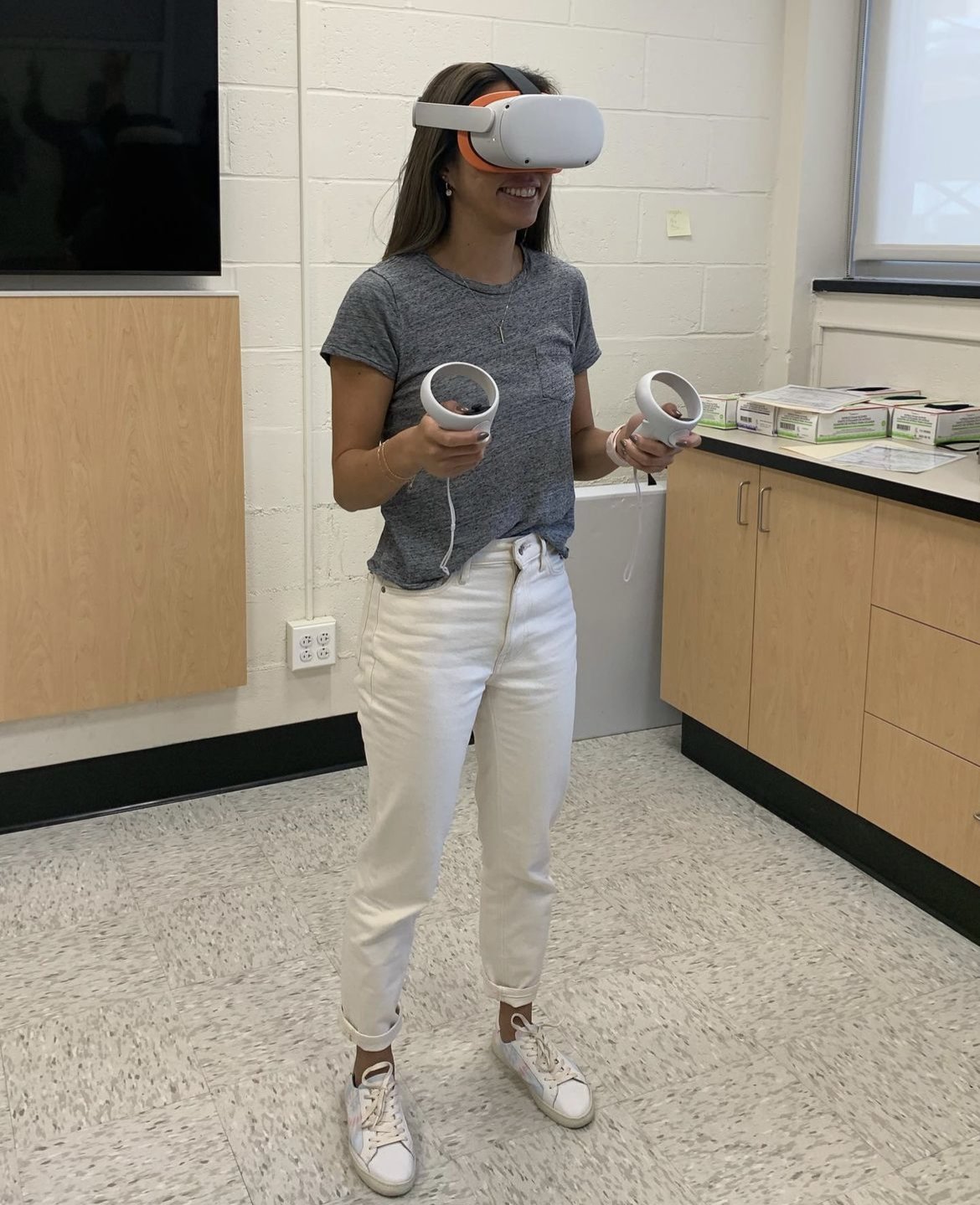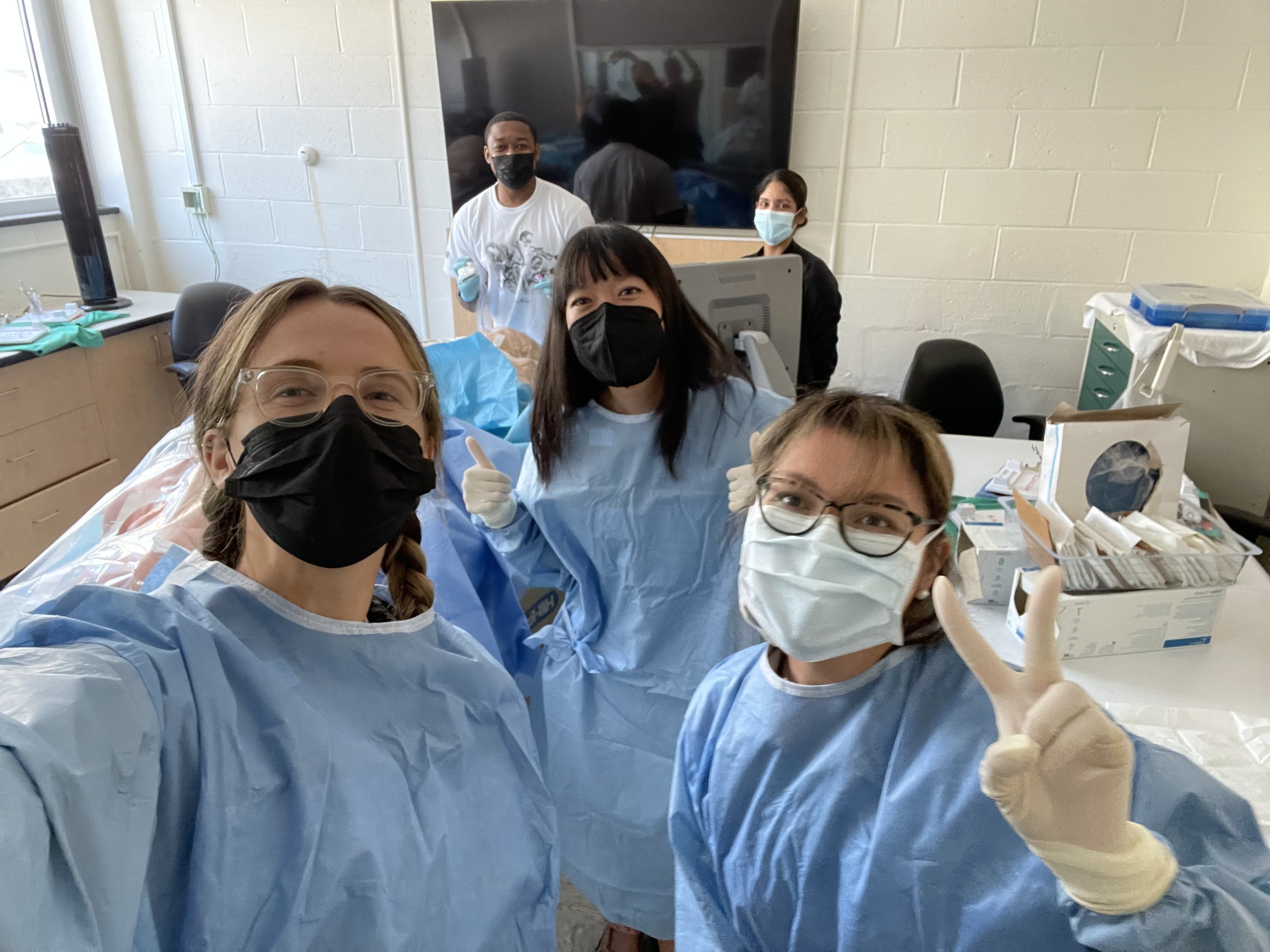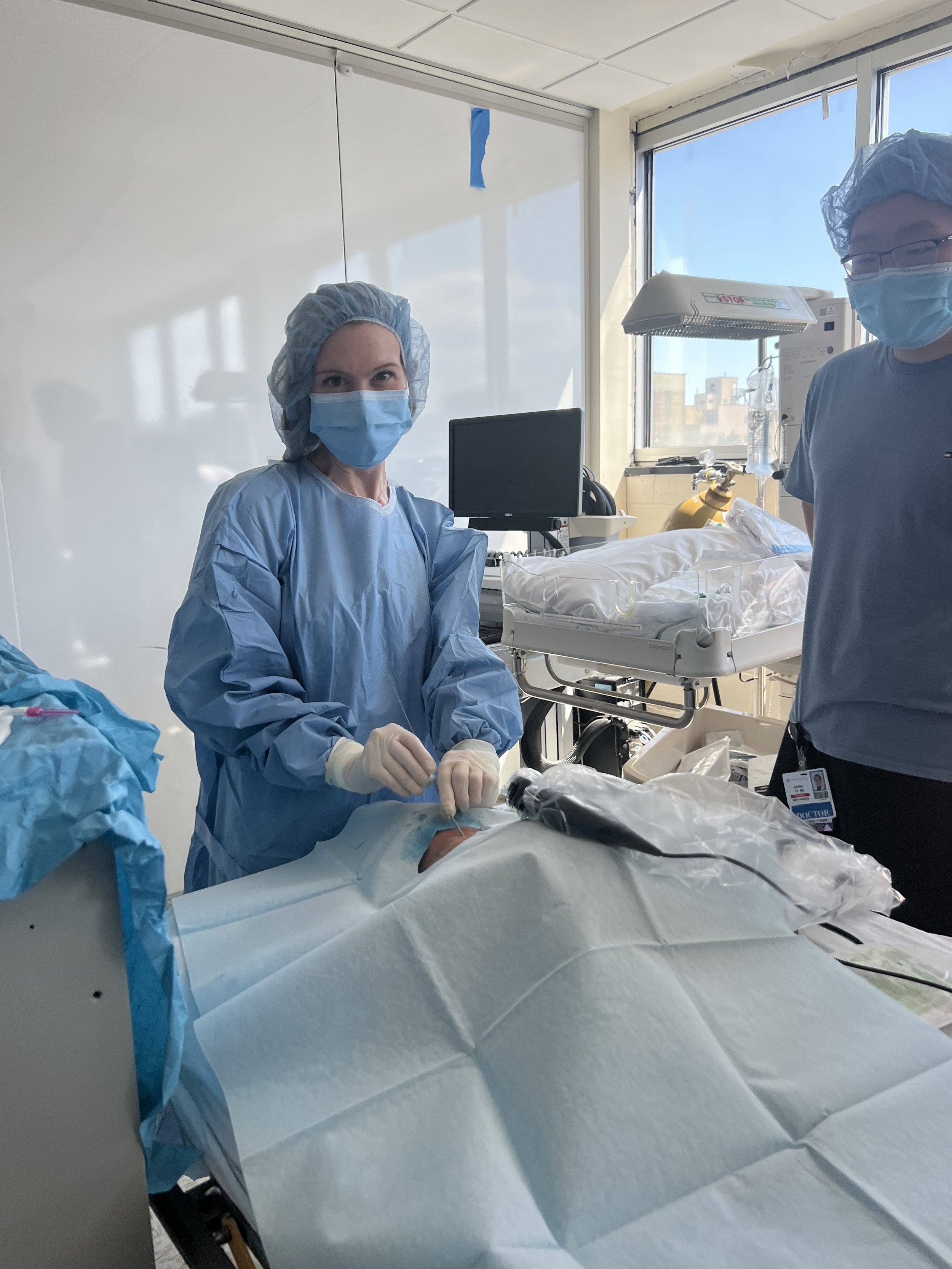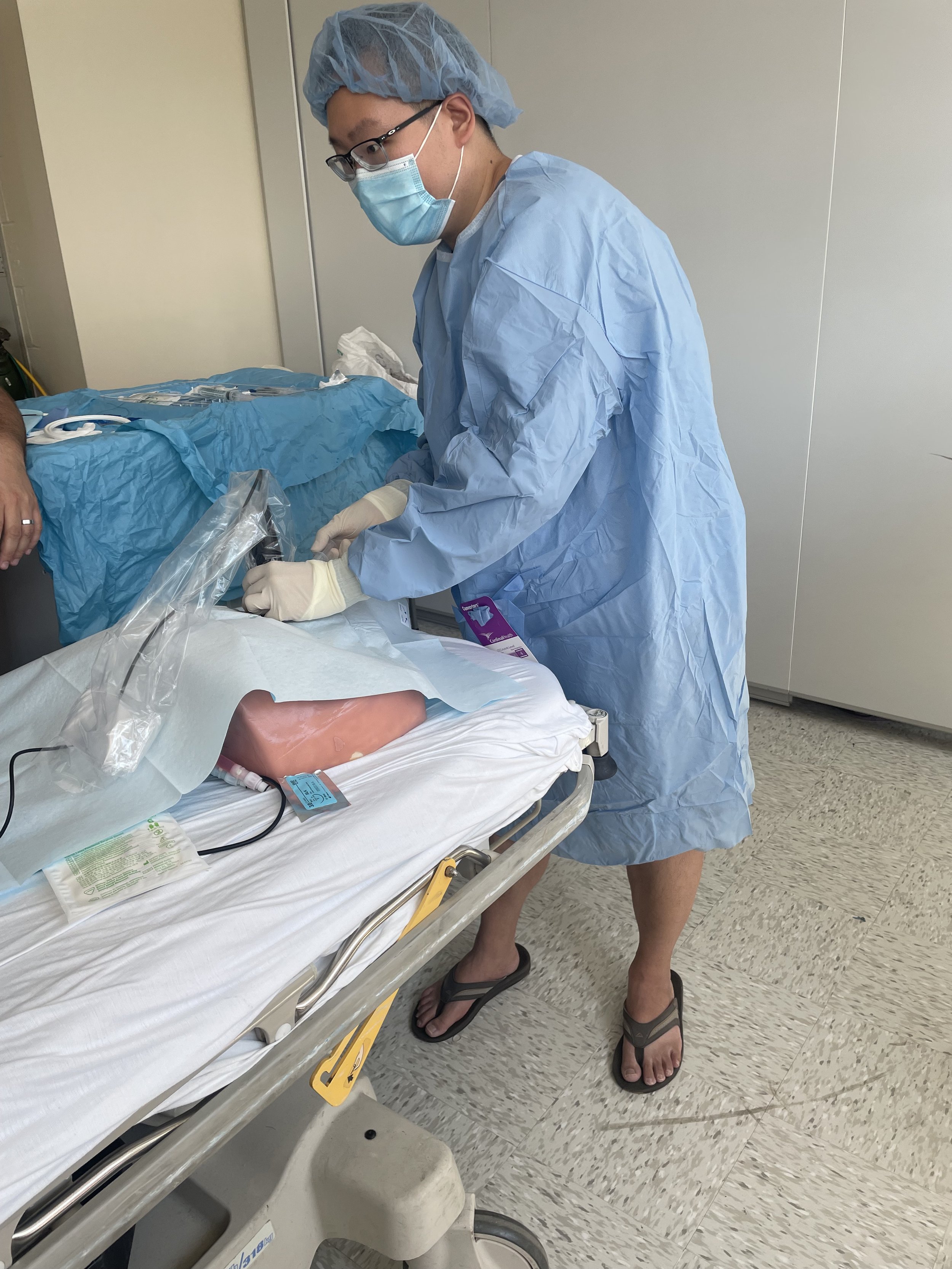- Letter from the PD
- Program Overview
- Curriculum
- Resident Life
- Diversity & Inclusion
- Social EM
- Scholarly Tracks
- International
- Salary & Benefits
- Virtual Webinars
- How to Apply
- Interview Day
- Event Medicine Elective
Simulation Fellowship
The program is a one year mentored experience working with experts in the field of simulation‐based education, administration and research while working part-time as an ED attending in the Maimonides Medical Center Emergency Department, a high volume urban academic facility in Brooklyn.
The Fellow will learn the theoretical framework for immersive pedagogy and the specific skills requisite to high value simulation education and assessment. Specifically, fellows will master scenario design, debriefing, assessment, evaluating educational outcomes and the integration of a multitude of simulation modalities.
In addition to leading undergraduate and graduate medical simulation sessions, fellows will learn to design and implement faculty development courses oriented toward mentoring simulation instructors. Research is important to the domain of simulation. Fellows will design and carry out simulation oriented research with the expectation of publication and presentation.
Lastly, fellows will acquire the administrative and technical skills necessary to develop and manage a simulation center through participation in meetings relating to the operations and organizational aspects of the center.
State-of-the-art Facility
The Maimonides Center for Clinical Simulation is a state-of-the-art facility constructed in 2011 that provides immersive and simulation based education to healthcare staff across multiple specialties and disciplines throughout Maimonides Medical Center.
The center has robust undergraduate and graduate medical education curricula for several specialties as well as programs for practicing physicians, nurses and allied health professionals. The center emphasizes both individualized education as well as interdisciplinary team based training.
We also have several active simulation based research investigations in the domain of cognitive errors, communication, debriefing, translation to clinical performance, and psychomotor skills acquisition.
Goals and Objectives
Upon completion of training, the fellow will have gained considerable knowledge and expertise in the following domains as they pertain to clinical simulation:
Curricular/Case development and execution; debriefing; education theory
Research
Administration
Patient Safety
Specifically, the fellow will have acquired a body of knowledge and level of skill in the creation & management of a Clinical Simulation Center and be prepared to assume a leadership role in teaching and administration including securing funds for the financial sustainability of a simulation center.
Physicians enrolled in the Clinical Simulation (CS) Fellowship will: create, manage and implement sustainable simulation curricula; understand relevant educational theory; teach the specialty of simulation training; design, implement, and complete a research project; learn how to construct a simulation center in a new location with the administrative, fiscal and technological infrastructure requisite viability.
Additionally, fellows will have ample opportunity (18-20 hours per week) for clinical growth in emergency medicine with regards to patient care, resident supervision, and bedside teaching.
Core Curriculum
The fellow’s core education involves daily integration with trainees and training staff in the center on week days when not working clinically in the Emergency department. The fellow will participate in nearly all Emergency Medicine related simulation programs and several simulation programs from other departments and disciplines. Through this immersive process, the fellow will learn the theoretical framework for immersive pedagogy and the specific skills requisite to high value simulation education and assessment.
Fellows will master scenario design, debriefing and assessment, evaluating educational outcomes and the integration of a multitude of simulation modalities. In addition to leading undergraduate and graduate medical simulation sessions, fellows will learn to design and implement faculty development courses. Research is important to the domain of simulation as it validates and promotes the growth of the specialty.
Fellows will design and carry out simulation oriented research with the expectation of publication and presentation. Lastly, fellows will acquire the administrative and technical skills necessary to develop and manage a simulation center through participation in meetings relating to the operations and organizational aspects of the center.
Application Process
We seek an energetic and motivated individual possessing strong education skills to spend a year in our Center for Clinical Simulation, learning alongside authorities in the field.
This is a proactive learning experience; mentors will provide the foundation and framework for the fellow to cultivate mastery as a simulation expert.
Interviews will occur on a rolling basis and will be offered after review of the following materials:
A personal statement indicating why you are pursuing a simulation fellowship
Current curriculum vitae including education portfolio
Two letters of recommendation
Please send these as attachments to:
Michael Lamberta, MD (mlamberta@maimo.org), Eric Roseman (eroseman@maimo.org), and Amish Aghera, MD (aaghera@maimo.org)
Email with the Subject Line: “Simulation Fellowship.”
Previous Fellows:
2014-2015 Nubaha Elahi, MD — Medical Director, MMC (2023-present)
2015-2016: Daa’iyah Cooper, MD — Life Coach and Real Estate Entrepreneur Baltimore, MD
2016-2017: Amr Badawy, DO — Community EM Houston, TX
2017-2018: Nicholas Koch, MD — Faculty, USC Keck School of Medicine; Michael Lamberta, MD — MMC Sim Div Director
2018-2019: Pamel Janairo, MD — APD, Kings County EM Residency; Annemarie Cardell, MD — APD, Emory EM Residency
2019-2020: Sheetal Sheth, DO — NYPQ Simulation Faculty; Christine Saracino, MD — PEM Simulation Faculty, Mt. Sinai
2020-2021: Eric Roseman, MD — MMC Simulation Faculty; Duo Xu, MD — MMC Simulation Faculty
2021-2022: Smruti Desai, MD — MMC Simulation Faculty, Director of DEI
2022-2023: Mukul Ramakrishnan, MD — MMC Simulation Faculty; David Shang, MD — MMC Simulation Faculty
2023-2024: Rasheeda Rickman, MD — Director of EM Simulation, Brookdale Hospital; Michael Light, MD — Assistant Director of Simulation, Rutgers University Hospital, Newark NJ
2024-2025: Patricia "Trish" Camino, DO FAAP — APD, MMC EM Residency; Vishnu Muppula, MD — MMC Simulation Faculty
Michael Lamberta, MD, CHSE, FACEP
Simulation Fellowship, Co-Director
EM Simulation Division, Director Simulation Center, Assistant Director
Eric Roseman, MD
Simulation Fellowship, C0-Director
Duo Xu, MD
Simulation Faculty
Smruti Desai, DO
Simulation Faculty
Michele Fagan, MD
Simulation Faculty
Mukul Ramakrishnan, MD
Simulation Faculty
David Shang, MD
Simulation Faculty
Nubaha Elahi, MD, MPH
ED Medical Director Senior Simulation Faculty
Amish Aghera, MD, CHSE, FACEP
Senior Simulation Faculty Simulation Center, Director Patient Safety Officer
Vishnu Muppala, MD, MPH
2024-25 Simulation Fellow
Patricia Camino, DO
2024-25 Simulation Fellow

